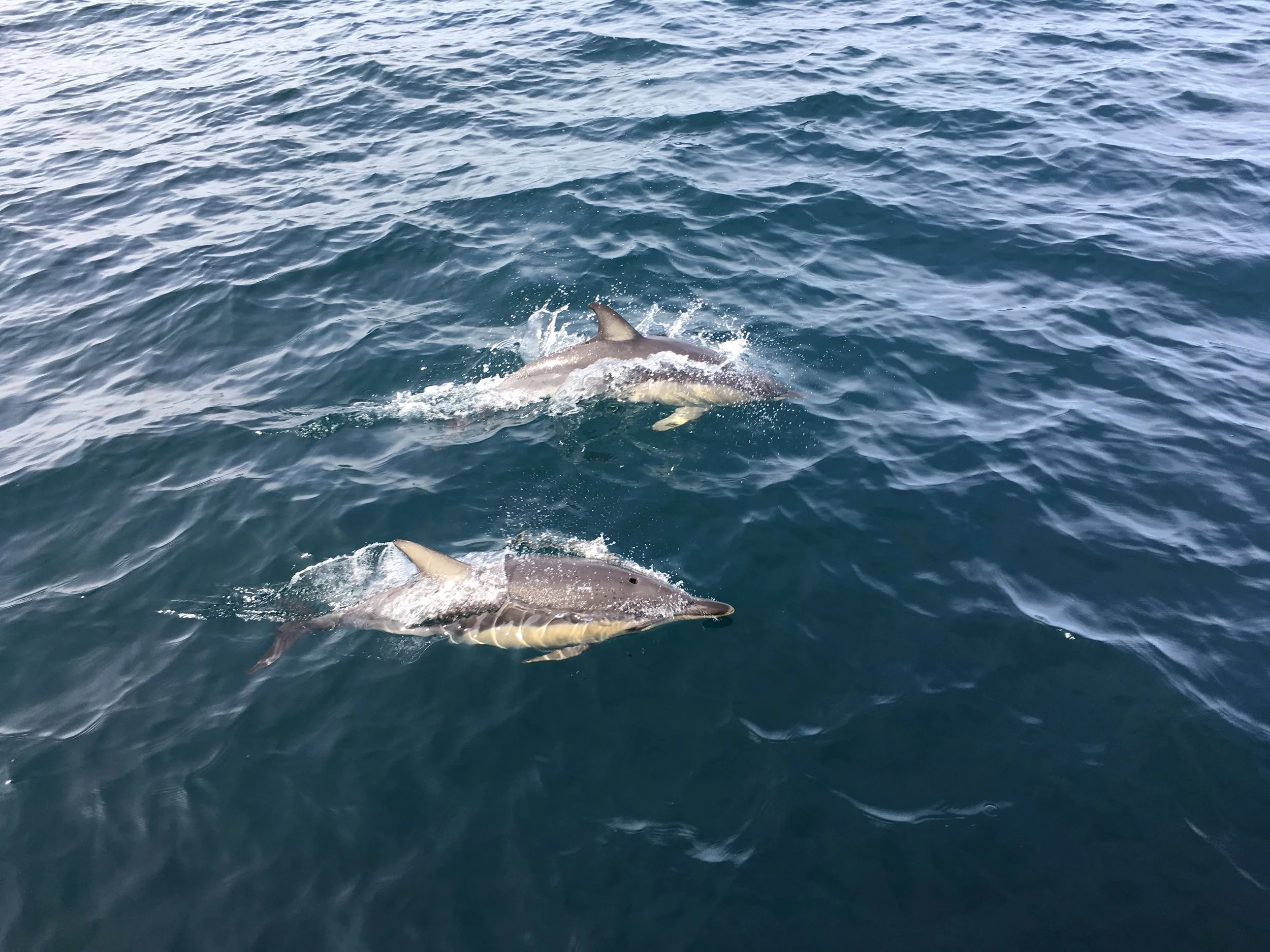A watch schedule brings routine to QuickStar. My night shift starts at 4am and this suits me fine; it’s the perfect time for some cockpit exercise before I settle into a few podcasts. Night watches are a time of solitude. Alone in the cockpit and alone on the ocean. My world shrinks to the limited reach of our red night light and the instruments telling me what my senses cannot. The blackness is so complete I can’t even see our white sails. I survey them with a torch at the start of my shift so I know how they are set and then the lights are out. Phosphorescence sometimes light our wake, but there is no visual reference for the seas around me. I am tumbling forward over the ocean, being rocked irregularly, but the darkness is so complete my body cannot brace for what is coming. I go with the flow, in its truest sense.
Some nights there are storms and the blackness is broken by flashes of lighting. I am not usually fast enough to see where they have come from so I turn to our radar. The sweep of the radar reveals moving patches of blue in several directions and my job is to dodge the storms. For hundreds of miles around the only peak on the ocean is our mast, so we try to avoid turning it into a lightning rod. Our course is a mess as we sacrifice the speed of a direct route for the safety of a lighting-free sea. These nights are busy and the time passes quickly.
A few nights this passage I had clear skies. If an empty ocean seems vast, it is nothing compared to the immense galaxies that lie beyond Earth’s skies. Our passage takes us through a waning and new moon which give us pure, black nights. There is no distinction between the sea and sky, I can’t tell where one stops and the other starts. Seeing the night sky without the corrupting lights of a city is humbling. Gazing up at stars whose light has travelled millions of years to reach me, I attempt to understand these distances which are so far from our physical reach. It is beyond my comprehension too. On the ocean, the Milky Way is not just a mass of stars, I can also see the backdrop of many smaller lights that we usually miss. The galaxy is a white streak across the black night sky. Its name makes sense to me out here. I pull myself back to the red glow of the cockpit and check our course.
As my night watch draws to an end, the horizon once again reveals itself. It hadn’t gone anywhere, it was just in hiding. On clear mornings, the blazing orange glow of sunrise is like an emerging dome from the edge of the sea. It revives the blues of the day world that were at rest overnight, as though the sea and the sky were using that peaceful time to restore their vibrancy for our pleasure the next day.

